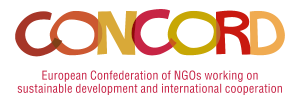The European Union’s international partnerships, development cooperation, trade and economic diplomacy strategies all refer to the important role that the private sector plays in achieving sustainability and poverty reduction objectives. Yet in practice, they often translate this into policies to support trade and investment by European companies in European Union (EU) partner countries, with the assumption that this will trickle down and create decent jobs. Yet, little attention is paid to the fact that most of these companies have prioritised maximising the extraction of resources instead of generating long-term positive societal and environmental returns.
This report makes the case for sustainable and inclusive businesses as key qualitative partners for the EU in its external action. Firstly, sustainable and inclusive businesses are driven by a social and environmental mission allowing them to create, rather than capture, value. Secondly, they are directed by participatory decision-making and inclusive governance, shifting power to people who are often left out of business decisions affecting them, such as employees, producers, community groups or environmental and consumer organisations.

The report illustrates how a focus on sustainable and inclusive business models can help the EU advance on its various objectives; whether creating decent work opportunities, empowering women, reaching out to more marginalised people or contributing to the ecological transition.
It also shows that the EU and its Member States, and various partner countries, have already taken some actions to support SIBMs. Yet, sustainable and inclusive businesses continue to face specific challenges: lack of awareness, non-conducive legal and regulatory frameworks, insufficient access to financial and technical support as well as learning and exchange gaps. Without addressing these challenges, the EU de facto disadvantages SIBMs compared with conventional business models.
The report offers concrete recommendations for the EU and Member States to level the playing field such as supporting awareness raising, ensuring trade and investment agreements support SIBMs and supporting the uptake of SIBMs by entrepreneurs in partner countries.
The purpose of this report should not be confused with the much-needed legal, regulatory, policy and institutional reforms to mainstream sustainability and corporate accountability across all businesses. This report, also available in Spanish, aims to show that it would be logical for the EU to support uptake of SIBMs side by side with other policies to demand sustainable and responsible behaviour from all businesses.
For media inquiries, please contact:
Lonne Poissonnier
Policy and Advocacy Coodinator | CONCORD
+32 (0)2 743 87 76
lonne.poissonnier@concordeurope.org
Katarzyna Krok
Communication Officer | CONCORD
+32 (0)2 743 87 82
katarzyna.krok@concordeurope.org

